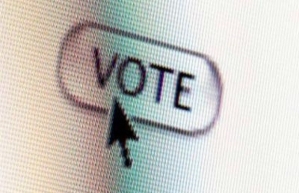
Photo: Posicionamiento Eficaz
The cost of implementing electronic voting is often used as an element of discouragement from its application, and in less fortunate cases, it is used to attack automation. However, when countries like Peru and Colombia call their governments to allocate resources for the transformation of their elections, it is a good opportunity to point out the advantage electoral technology offers to save money in the future.
It is logical to suppose that elections are more costly when they are reliable, safe, audited and validated by all political actors. However, a simple calculation of the costs deriving from crises caused by elections with illegitimate results could change considerably the view on the supposed high cost of e-voting.
Experts say that even though e-voting implies a high investment for its implementation, it actually yields long-term savings. This appreciation stems from the fact that implementation requires a significant amount of money for the acquisition of software and hardware, training of human resources, and education of the citizens on the use of the new suffrage model.
However, after the leap to automation, experience indicates that costs diminish considerably due to the fact that expenses for the next processes are destined to the maintenance of the technological platform, not its acquisition. Besides, the high cost of printing ballots, conditioning thousands of polling centers, and hiring personnel to deploy the elections would be suppressed.
Honduras illustrates this situation perfectly, as the debate over the adoption of e-voting includes guaranteeing accurate results, but also diminishing the allocation of public resources into elections. Judge Denis Gómez, from the High Electoral Court (TSE), has stated, “one advantage of e-voting is that the TSE would save the cost of printing ballots, which is approximately 30% of the electoral budget. Only for the next election the court will print 32 million paper ballots for the three electoral levels.”
The coordinator of Electoral Systems and Computing of Peru’s National Office for Electoral Processes (ONPE), Jorge Luis Yrivarren, says that e-voting helps diminish or eliminate costs at every constituency, as it does not require paper and the number of polling stations decreases. He also states that the voting capacity held by an electronic station is superior to that of a traditional or manual one, where there is a maximum capacity of 200 Peruvian voters.
When there is a debate over electoral automation, many focus on the costs, but they do not acknowledge the positive cost-benefit relation it brings to Democracy. E-voting has shown in many countries, such as Brazil, India, Venezuela, and USA, that the investment is worthwhile to shield the will of the people and guarantee that each scrutinized vote counts and is respected.

 Defeating resistance is a task that takes persistence, and four Latin American countries have understood so. Colombia, Honduras, Peru, and Mexico have coincided this month in raising their voice in favor of the advancement of their electoral systems. All of them have stories where their Democracies have been hurt due to the doubtfulness of their electoral processes and their results, and for this reason they persist in betting hard for e-voting as the way to eradicate vice and stopping fraud.
Defeating resistance is a task that takes persistence, and four Latin American countries have understood so. Colombia, Honduras, Peru, and Mexico have coincided this month in raising their voice in favor of the advancement of their electoral systems. All of them have stories where their Democracies have been hurt due to the doubtfulness of their electoral processes and their results, and for this reason they persist in betting hard for e-voting as the way to eradicate vice and stopping fraud.